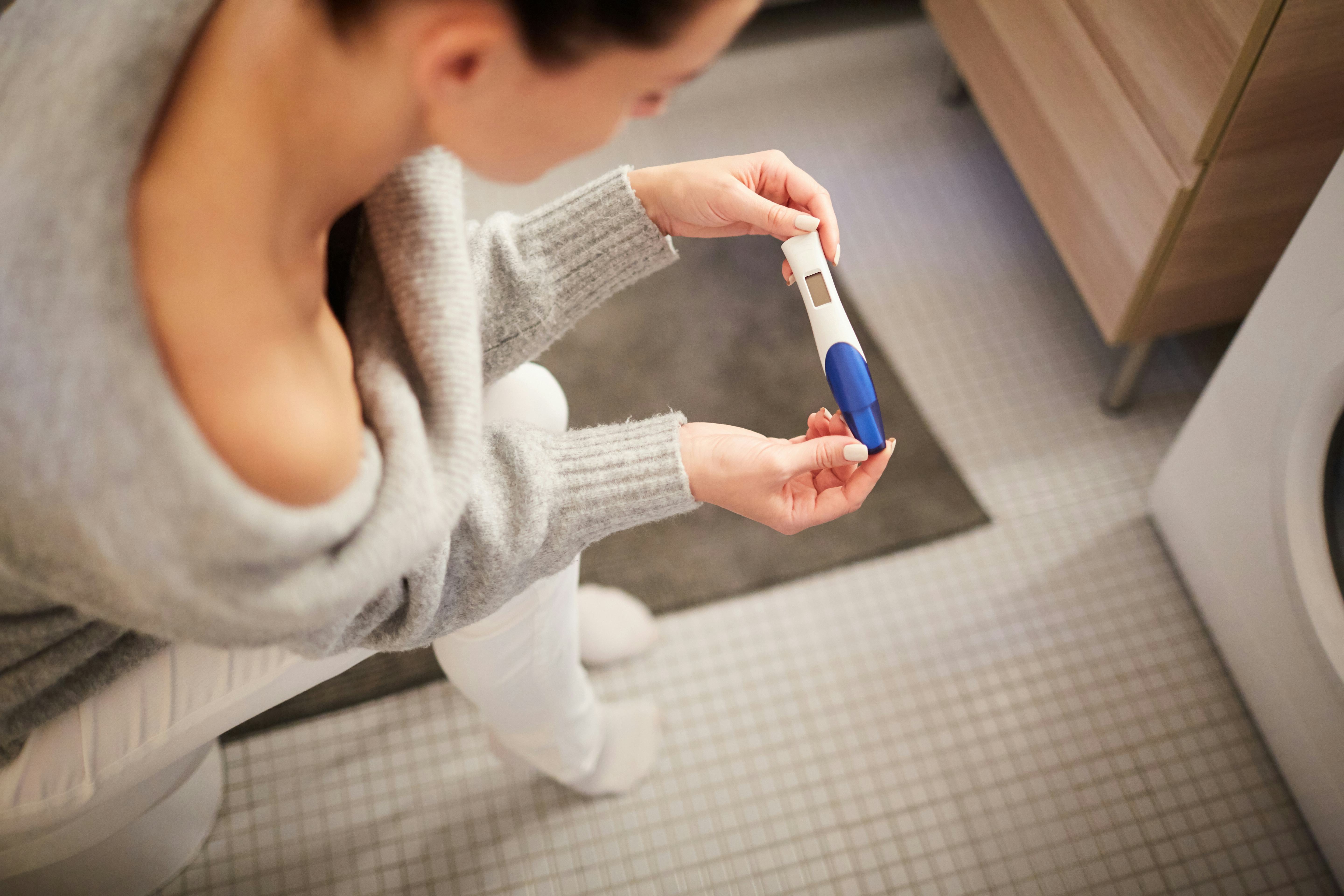
If you and your partner are trying to conceive, what haven’t you Googled to try and figure out what helps and what hurts your chances? It makes sense that if you’re TTC, you may be curious about how female masturbation affects ovulation. Does masturbating hurt your chances of conceiving? What about orgasms in general? Since sex doesn’t always have to include a partner, it’s important to know what’s what when it comes to masturbation and baby-making.
“Female masturbation is not associated with ovulation and should not have an effect, either positive or negative, on the chances of ovulation occurring,” obstetrician Dr. Danielle Jones tells Romper. “There have been no primary links scientifically shown between masturbation and fertility in general.”
Orgasm & Conception
Women who are trying to conceive may have noticed that, when you’re logging your daily temperature and whether or not you did the deed, your pregnancy app asks whether you orgasmed during sex. If an orgasm can help you conceive, wouldn’t learning what you enjoy by masturbating, you know, lead to more of those?
“No good studies actually currently support a link between orgasm and increased chance of conception. Although we have some studies that support orgasm may enhance sperm transport to the tubes, likely due to the effects of oxytocin on the uterus, this has not been identified to correlate significantly with fertility or pregnancy chances,” Jones says.
Despite the fact that an orgasm (whether solo or with a partner) won’t automatically equal pregnancy, the experience can still be helpful during your TTC journey. Dr. Kim Langdon, an obstetrician, explains to Romper how this phenomenon occurs. “Orgasm causes uterine contractions, which can promote sperm transport to the fallopian tube, which enhances conception,” she says.
Masturbation While Trying To Conceive
Experts agree that masturbation while trying to get pregnant won’t hurt your chances of conception, but Dr. Langdon explains that masturbation may actually help increase the likelihood of successful ovulation in a round-about way. “It is more likely to promote ovulation rather than hinder it because orgasm relieves stress and excess stress can be linked to lack of ovulation,” she explains.
While there’s no sure way to know if masturbating will help you conceive, you can still safely have solo sex while TTC. Plus, if you find that a little alone time makes you more excited to get intimate with your partner later, then maybe it will help your fertility, albeit indirectly.
“Although we don't know of a specific link between orgasm and conception, it is certainly within the realm of possibility that those who enjoy and achieve orgasm will be sexually active more often if they are able to enjoy and achieve orgasm with their partner,” says Jones. “As far as masturbation, an understanding of your own body and what leads to sexual pleasure for an individual is a positive thing, and can improve pleasure during sex with a partner as well.”
How To Boost Fertility
If you’re trying to boost your fertility these days, Jones says there are things that can increase your chances of getting pregnant.
“As far as optimizing natural fertility, the best thing we can do is have frequent — and hopefully enjoyable — intercourse, avoid tobacco, and keep alcohol and caffeine intake to a reasonable amount. One to two drinks per day and moderate caffeine consumption are both associated with slight decreases in conception chances. And maintain an active and healthy lifestyle that optimizes nutrition and maintains a healthy, normal body weight,” she says.
As for how masturbation fits into your pregnancy journey, it may not get you there any faster. But, if it’s something you enjoy, there’s also no reason to stop. In fact, you can actually continue masturbating safely throughout pregnancy.
“I think the value of masturbation and orgasm are very individual,” says Jones. “The overall take-home is that female masturbation shouldn't be shameful or taboo. It's a normal part of life for many people.”
Experts:
Danielle Jones, M.D., OB-GYN at Baylor Scott & White Health
Dr. Kim Langdon, OBGYN with Medzino

0 comments:
Post a Comment